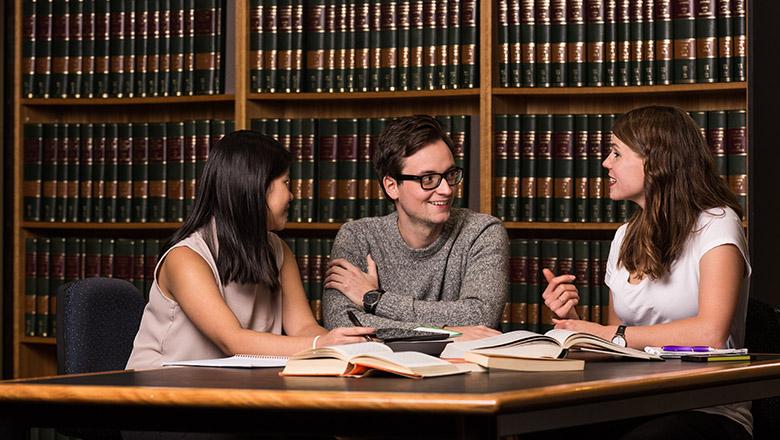Legal Studies seems like a fairly heavy high school subject, but it’s absolutely possible to excel in – with the right mindset and study habits.
Whether you’re thinking about pursuing Year 12 Legal Studies, or you’re already in the thick of it, mastering your study style for this subject is necessary for success. It will help you secure grades that will uplift your ATAR, which in turn ensures you reach that next step – university, work experience, alternative higher education or otherwise.
Before we delve into our top study tips for high school legal studies exams and assessments, however, let’s address a few of the questions students heading into senior school might be deliberating, including the obvious ‘is Legal Studies a good subject?’ and ‘what is Legal Studies, anyway?’.
Why study Legal Studies?
Two of the main reasons students choose Legal Studies as one of their senior school subjects is because they have an interest in law, justice and human rights and/or they want to study law at uni.
What many students don’t realise is that Legal Studies is about much more than learning what goes on in a courtroom and can provide foundational knowledge to kickstart a wide range of career paths.
What do you learn in Legal Studies?
- Criminal investigation and trial processes
- Punishment and sentencing
- Negligence and the duty of care
- The Australian legal system
- Law reform
- Human rights
- International law
Is Legal Studies hard?
There’s a lot of reading and a lot of content to cover. Learning Legal Studies in high school takes time, commitment and perseverance. You may find this subject difficult if you aren’t willing to put in the time to do the readings, ensure you understand them properly and review content weekly. But if you’re serious about pursuing a career in law, criminology, politics, policy or human rights, senior school Legal Studies prepares you for your next step towards that goal – undertaking higher education (such as university).
How to study for Legal Studies

How to study for a Legal Studies exam
Year 12 Legal Studies involves remembering plenty of legal terms, specific acts and articles, and case studies, so committing these to your long-term memory is essential for your exam.
Have you guessed what we’re going to say next? We know you’ve heard it before, but you really need to keep up consistent revision throughout Years 11 and 12 Legal Studies to help you better retain all this information.
Alongside frequent revision, these study tips will help you walk into your Legal Studies exam with confidence:
- Write down definitions of legal terms on flashcards or posters and pin them around your study space to help keep them in your long-term memory.
- Memorise important acts, dates and articles throughout history (which have been covered in the syllabus) that you believe can be used to support your arguments in your exam responses.
- Have a few key case studies up your sleeve that can be called upon as supportive evidence for a variety of arguments.
- Complete a few Legal Studies past papers to get a feel for the type of questions that may be asked, how to structure your points and how to write within the time constraints.
- Keep referring back to your syllabus when studying to ensure you’re staying on track and that you have a clear understanding of each topic. If you recognise gaps in your knowledge of any of the topics, or find certain topics challenging, spend a little more time revising these each week.
How to write a Legal Studies essay
Essays make up a significant proportion of QCAA Legal Studies. An argumentative essay accounts for 25% of your internal assessment, and in your final exam, your extended response – which is structured like an essay – is worth 27 of the total 48 marks. So, it’s pretty important that you know how to write a Legal Studies essay. Here are a few tips to help you finesse your essay writing skills in preparation for both your internal and external assessments.
- Always draft a structure for your essay before you start writing to assist with staying on track and providing succinct arguments.
- Use the TEEL method to structure your paragraphs and arguments.
- Use legislation, cases, media, documents and international articles as evidence to support your points.
- If you are able, write about the areas of law and cases that interest you. This sounds simple but can really make all the difference, especially when it comes to conducting research and doing a lot of reading in preparation for your essay.
- Ask your teacher if they’d be happy to mark and provide feedback on practice extended responses in preparation for your exam.
We hope these study tips for Legal Studies help you ace your assessments and exams and assist you in securing a final grade you’re proud of.





